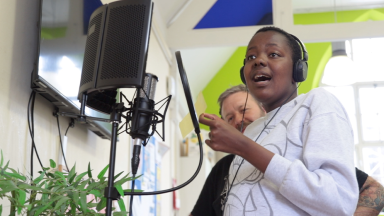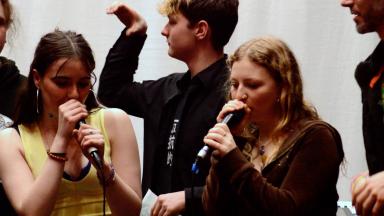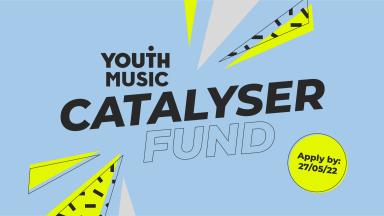The Plugin Project, run by Quench Arts, was launched to provide creative music making opportunities for young mental health inpatients aged 12-25 in Birmingham and Coventry. It aims to support individuals who would otherwise be unable to express themselves musically, and to embed continued music provisions in youth inpatient settings.
Due to the nature of mental health institutions, vulnerable young people are often placed in settings that are far from friends and family and can be isolating and disrupt hobbies and interests. Additionally, young people in these settings only get the chance to interact with other unwell young people, and have their regular education disrupted, meaning that many are not having their social and creative needs properly met.
To support their goals of helping these at at-risk young people, Quench Arts, supported by the Youth Music Catalyser Fund, is currently in the process of running over 30 half day sessions for young people at a number of several inpatient settings. These sessions are led by a professional musician and a young music leader. The Plugin project gave over a dozen visiting performances, affording these vulnerable young people the opportunity to explore their musical interests in a safe and supportive setting, and giving participants an outlet for expressing themselves. They also offer options for more long-term achievements and development, with participants being given the option to pursue an arts award if they wish to.
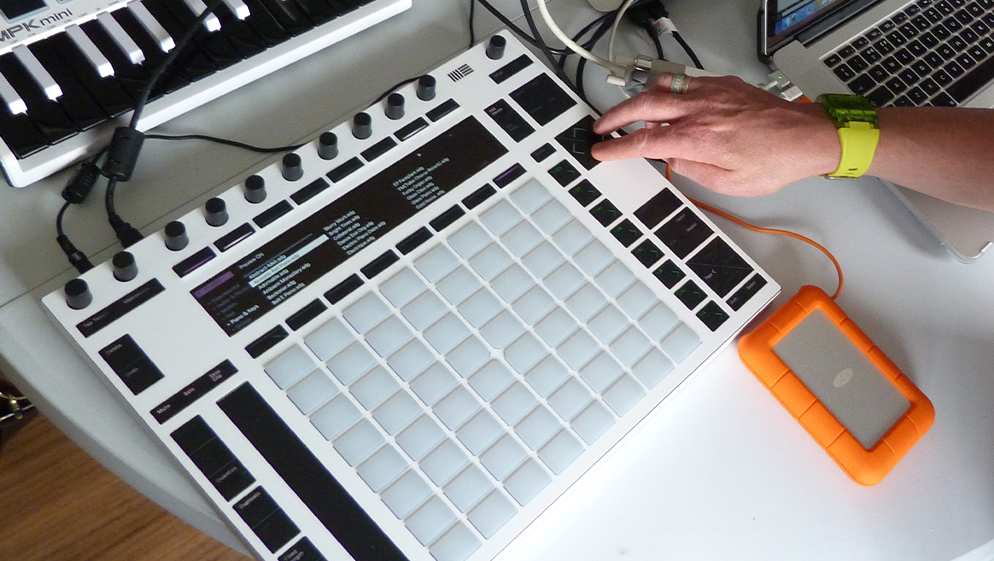
Talking about how the project has impacted participants, Elizabeth Viggers, Co-Founder and Director of Quench Arts shared, “On the most basic level it’s given young people something positive and practical to do and look forward to whilst they are in hospital, providing entertainment, social interaction and creative inspiration in a space they are very often confined to for 24 hours a day, 7 days a week for a period of their life.” But given the impact the project has had, the effects are far from basic. Elizabeth continued, “On a deeper level, for some young people, the project has literally been life changing. It’s given them a tool to express themselves and connect with others, and a way to build their resilience to recover and keep well. By providing an outlet, it’s helped to reduce self-harm and build friendships and inspired some young people to return to education and do more with their musical skills and creativity.”
The Plugin Project has given young people an opportunity to not only express themselves, but also better examine and understand themselves and their situations. Elizabeth explains, “In our sessions, the young people themselves decide what music they’d like to create and the topics they’d like to write about, we don’t steer that at all, but very often the music they create is about their personal situation and hopes for the future. We’ve had songs about the quirks of life on a ward, being observed going to the toilet, and even group songs about a flock of ducklings that visited the ward that day!”
The nature of the hospital setting has caused some difficulties and complications, with programme staff needing to be careful not to disrupt interfere with or upset all the other work happening in the hospital and ensuring they don’t get in the way of any treatment. There are more practical challenges too; many of the participants are in a forensic hospital setting which restricts them from internet access, requiring all tools to be accessible offline, and additionally, care needs to be taken with regards to instruments, as parts like guitar strings could be unsafe to leave with a vulnerable young participant.
The team from Quench Arts have not been deterred by this and have been fortunate to find support from hospital staff. “We’ve been extremely lucky to have some brilliant and dedicated nurses, ward managers and occupational therapists/activity workers support our sessions,” Elizabeth explained. “It has been a positive influence on the ward environment and morale, not just for the young people but for the staff too.”
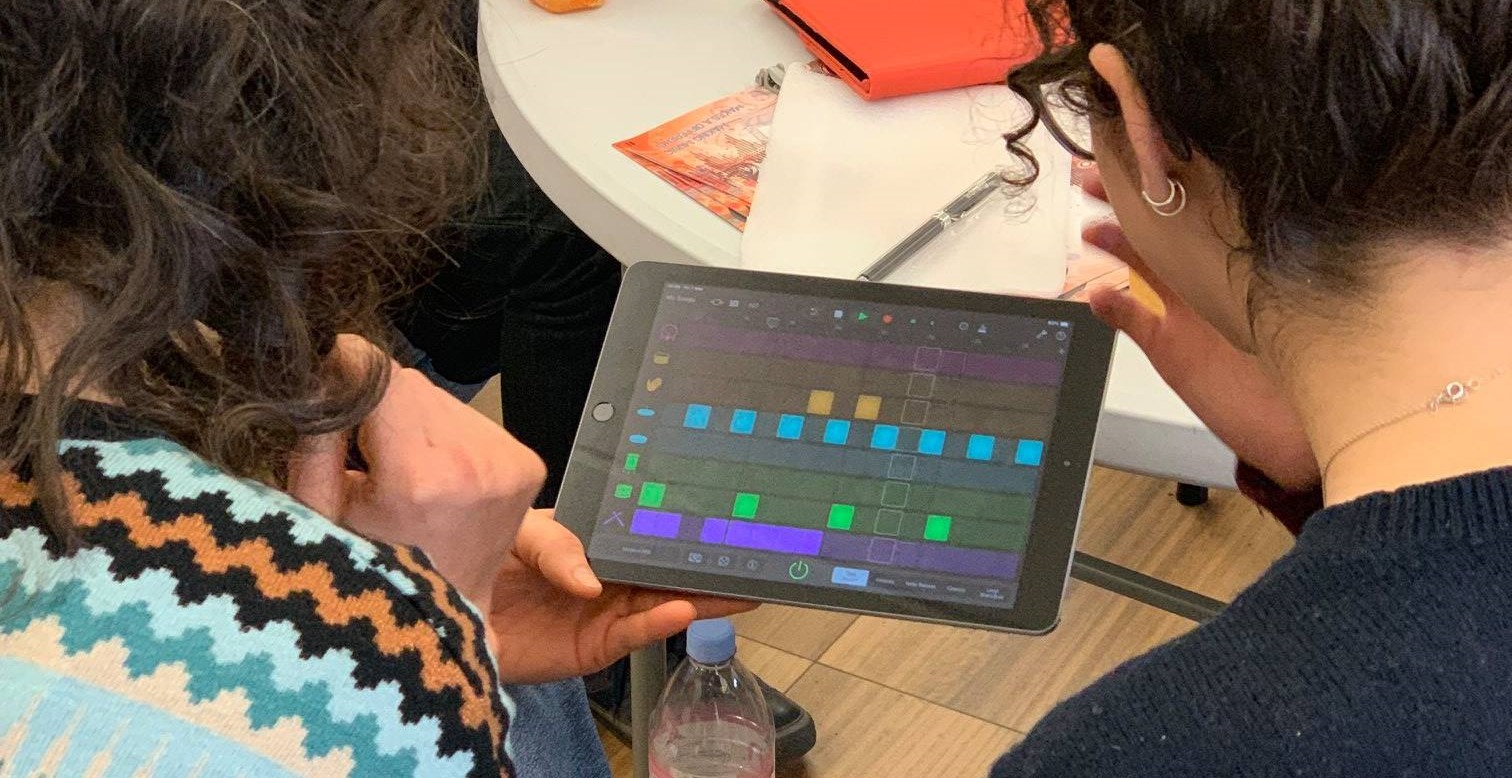
The project is still ongoing, and direct feedback so far has been excellent. The vast majority of participants improved in their level of satisfaction with their musical abilities. Personal development is also strong, with most of the participants feeling they have improved their understanding of how music can affect their mood.
“Many of the young people that we work with have had quite a disrupted education because of their mental health and, as a result, might not have had much chance to feel recent success and achievement, which has often impacted on their self-esteem,” Elizabeth shared. “The Plugin Project gives young people the opportunity to create and complete something new during their time in hospital, to feel that sense of ownership and pride, and to have something tangible that they can take away and remember from a difficult time in their lives.”
Read next...
Kent Album Project: Amplifying Young Voices
The Kent Album Project, led by Square Pegs Arts, captures the spirit of Kent and Medway through the voices and talents of young autistic, learning-disabled, and neurodivergent individuals.
BREATHE Academy: The Empowering Art of Beatboxing
BREATHE Academy is an empowering project supported by the Youth Music Trailblazer Fund, helping young people aged 12 to 25 across the UK to explore their identities using beatboxing.
Catalyser Fund
The Youth Music Catalyser Fund offers grants between £30,001 and £300,000 to organisations in England who want to sustain work, scale-up delivery, or create change in sector practice.

